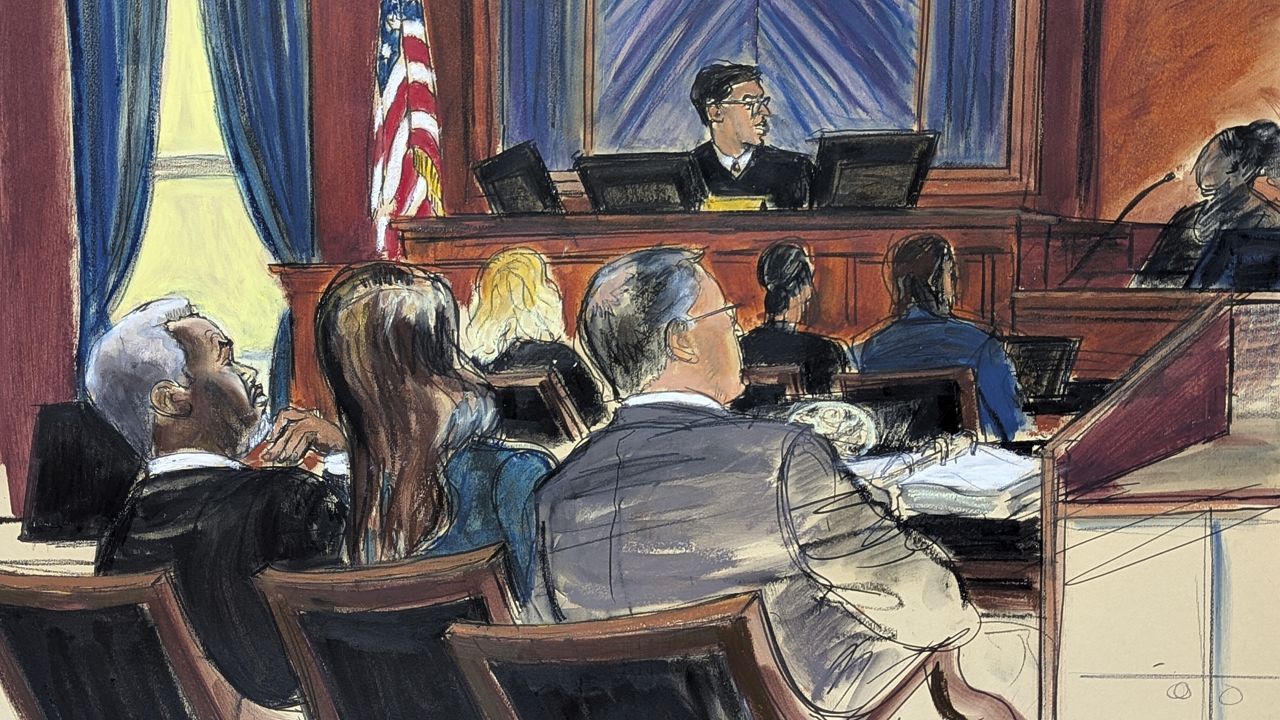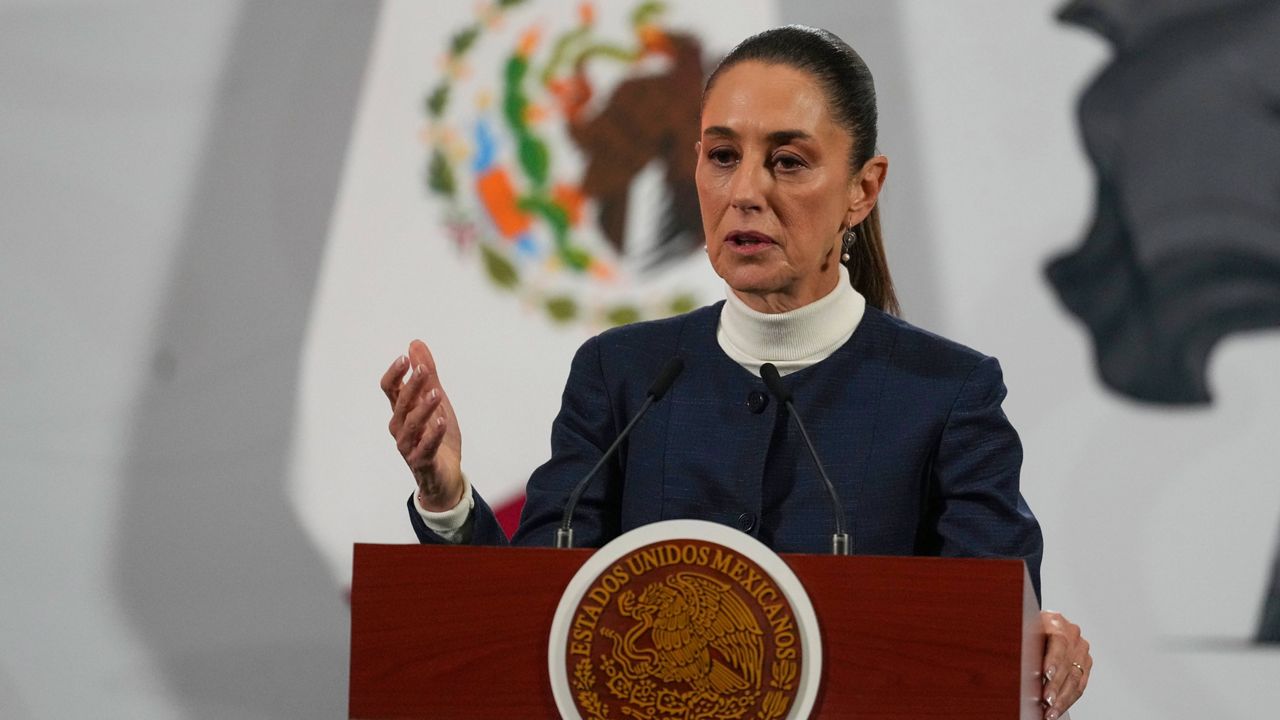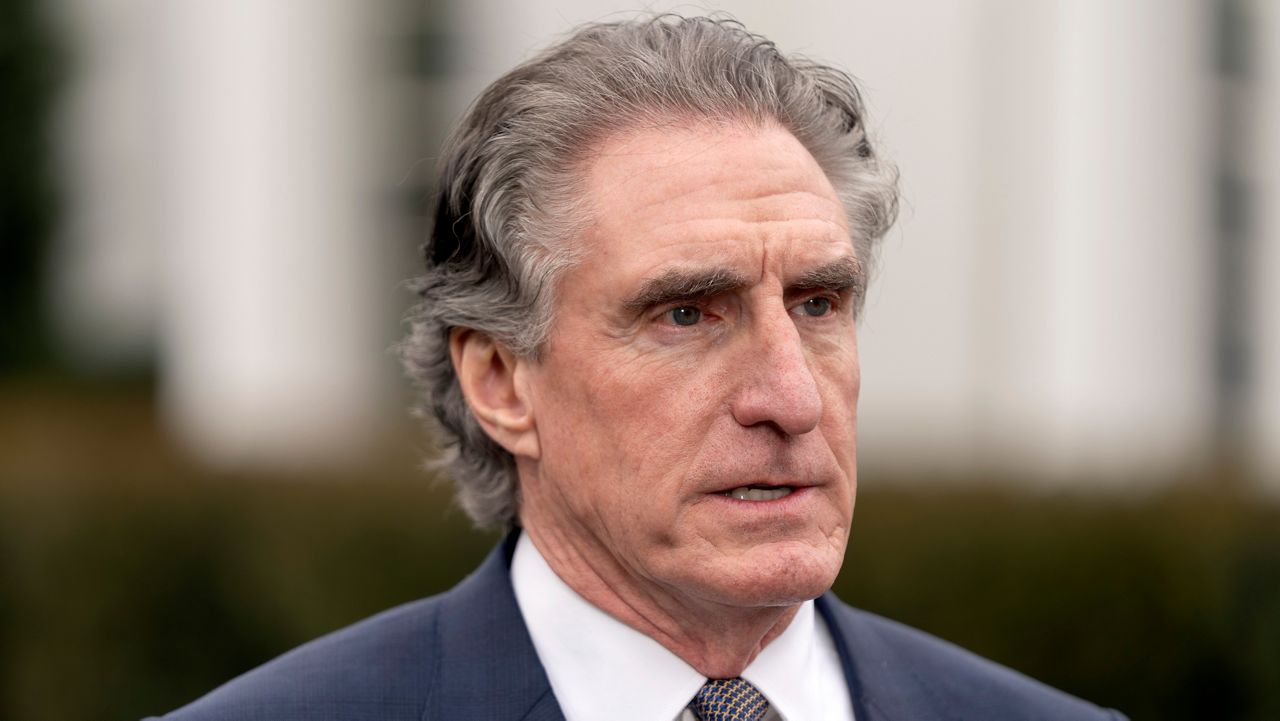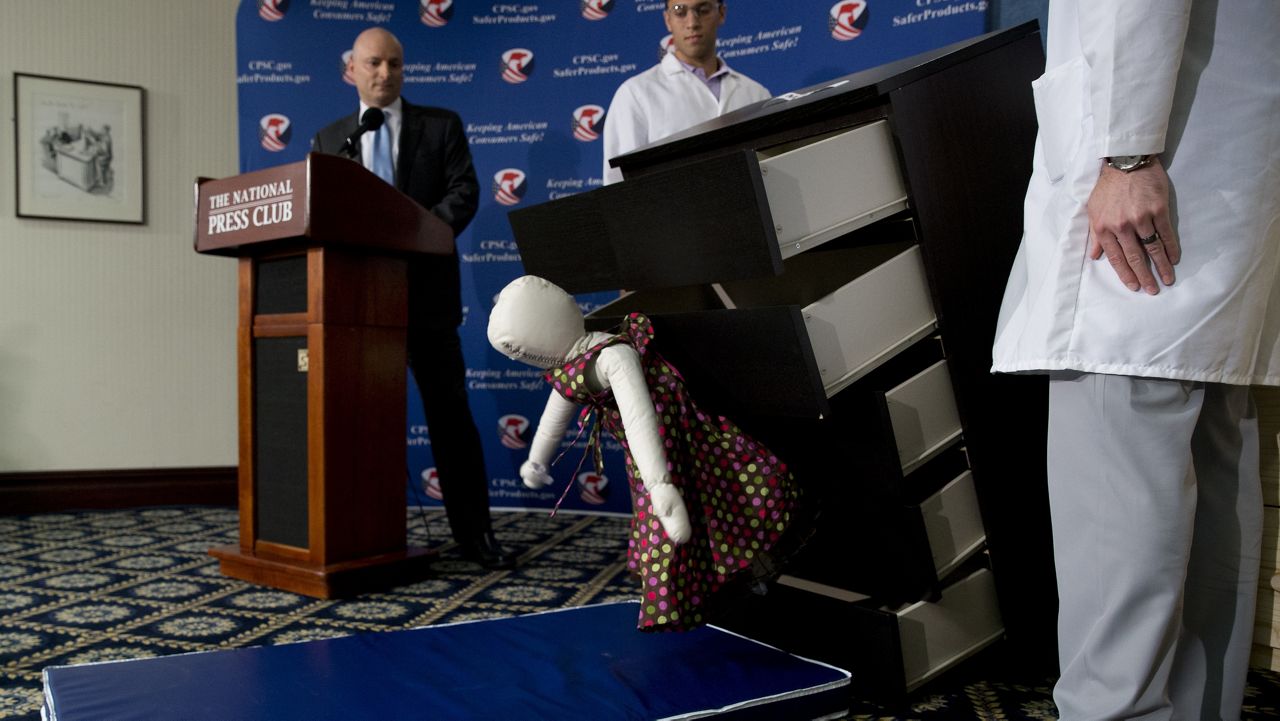With less than four weeks until the midterm elections, Spectrum News traveled to a second battleground state whose race could help decide the makeup of Congress – which impacts Americans no matter where they live.
The election in Arizona is in full swing. Campaign signs are out, and early voting has started
There are a number of key races in the Copper State, including one for Mark Kelly’s spot in the U.S. Senate. All nine House seats are up for election, as is the governor, the state attorney general and the secretary of state.
At stake is control of an increasingly populous border state that narrowly went for Joe Biden in 2020. Meanwhile, the balance of power in the Senate could hinge on the outcome of Kelly’s race.
“We’re a center-right state, but it’s very independently minded,” Lorna Romero, a Republican consultant, told Spectrum News.
It’s a state which, until recent elections, leaned more reliably right than left – but experts are watching to see whether that trend continues in the midterms.
“This is really a swing state,” Rodd McLeod, a Democratic consultant, said in an interview with Spectrum News. “It’s a purple state with a hard core of right-wing Republicans in the Republican primary, but overall the state is much more up for grabs than it looks.”
The U.S. Senate race is between Democratic incumbent Mark Kelly and Republican venture capitalist Blake Masters.
With control of the Senate hinging on the outcome of the midterm races across the country, all eyes are on Arizona’s competitive seat held by Kelly, who first took office in 2020 thanks to a special election after the passing of John McCain. At the time, Kelly faced off against Martha McSally, a Republican appointed by the governor to fill McCain’s seat before a special election could be held.
Ultimately, Kelly defeated McSally in 2020 by just under 79,000 votes, joining Kyrsten Sinema in the Senate – and for the first time since 1953, Arizona is now represented by two Democrats in that chamber of Congress. Joe Biden won Arizona by a smaller margin – slightly over 10,000 votes – in 2020, becoming the first Democratic presidential candidate to carry the state since Bill Clinton in 1996.
It’s a trend that’s likely to continue, at the very least in the state’s Senate race, where Kelly is projected to handily beat his opponent.
Kelly’s seat in the border state is important because the former astronaut tends to support the president on a vast majority of issues, with FiveThirtyEight estimating the Senator votes in line with the president around 94% of the time.
The governor's race is seen as closer, where former TV anchor Kari Lake faces Katie Hobbs, the current secretary of state.
“The fact is it is neck-and-neck, and Kari Lake is not popular. If you look at polling, her favorable-unfavorable rating, she’s underwater, where Katie Hobbs is above,” McLeod told Spectrum News, adding: ''She's not as telegenic as someone who spent 25 years reading the news every night on Fox.”
Lake is a supporter of former President Donald Trump and frequently parrots his baseless stance that he won the state of Arizona in the 2020 presidential elections, despite having no evidence to support those claims. Among Lake’s top issues are securing the border with Mexico, election security and abortion access, as she is staunchly pro-life.
Hobbs has served as Arizona’s secretary of state since 2019, and was the first Democrat to hold the office since 1995. Hobbs has pledged to support and expand protections for abortion access and agrees on the need for comprehensive immigration reform with a pathway to citizenship for DREAMers.
She also stood against Donald Trump's claims of election fraud in the state and worked in conjunction with the National Archives to ensure only certified electors were submitted to Congress – a position that earned her accolades among Democrats, who cheered her decision to enter the gubernatorial race. Hobbs was ahead in early polls, and was up by around seven points as recently as August.
Still, Lake has managed to keep Hobbs on her toes by calling out her opponent’s refusal to engage in a public debate, with the latter saying during a campaign event on Wednesday: “I’m not interested in being a part of Kari Lake’s spectacle or shouting match, and I’m going to talk directly to the voters.”
Outside, Lake’s supporters danced around in chicken costumes, per the Associated Press.
Polls have flip-flopped over who is likely to come out on top, though Lake currently has a narrow advantage of less than one point, according to FiveThirtyEight.
Other races down ballot are also drawing attention – and concern. There is a particular focus on the secretary of state race, as it is a position that oversees elections. The Republican nominee has repeatedly denied the validity of President Biden’s win in Arizona.
Rep. Mark Finchem, a Trump-endorsed Republican running against Democrat Adrian Fontes, has made election security – or the alleged lack thereof – his top campaign focus. Finchem is associated with the far-right extremist group the Oath Keepers, and was in Washington at the time of the Jan. 6 rally ahead of the insurrection on Capitol Hill.
Should he be elected, Finchem would be the state’s chief election officer and also the first-in-line should the governor’s seat be vacated, as Arizona does not have a lieutenant governor.
And the race is tight, with Finchem barely edging out Fontes as the favorite to win.
Issues are similar to those elsewhere. Inflation and the economy are reliably at the top of the list of topics voters in Arizona want to hear about, according to a bevy of polls conducted over the course of this year, a similar thread to voters in the battleground state of Pennsylvania.
“The fact that gas is really expensive and the fact that crime is very high now, back to where it used to be, those are my two issues,” one Arizonan told Spectrum News.
Democrats have raised concerns about abortion rights being rolled back. Arizona’s stance on abortion as a whole is in limbo while an appeals court considers the enforcement of a Civil War-era ban on the procedure.
In the Senate race, Kelly has slammed Masters for his stance on abortion, which NBC News reported has softened as the governor’s race heated up. Originally, Masters’ campaign website said he was “100% pro-life"; the site was subsequently updated to indicate Masters’ support of a nationwide ban on abortion beginning in the third trimester, per NBC.
While it might not be the top issue for a majority of Arizona voters, it is certainly on their minds.
“It’s like you’re making an opinion about somebody else’s decision to have a child even though you’re not even going to have a say-so in that child’s life,” one Arizonan told Spectrum.
Former President Donald Trump, meanwhile, recently stumped with Republican nominees, most of whom were his pick during the primaries. He again claimed he won the presidential election. Multiple recounts and court cases find this factually inaccurate.
And the former president continues to have a hold on the statewide races, as the Republican candidates for Senate, secretary of state and governor have all expressed doubts about the results of the 2020 election.
“I think Trump has the most impact when it comes to Republicans in a primary. We saw this here in Arizona a few months ago where we had a number of statewide campaigns that had contested primaries at the top endorse candidates ended up being victorious,” Republican consultant Liz Romero said in part.
Since Arizona is a border state, immigration is also a contentious issue across the state. One CBS News poll found voters ranked immigration as the third-most important issue, second to economy and inflation. In that same poll, Masters had a slight edge over Kelly.
Notably, this is an area where Sen. Kelly has diverged from the president. In the state’s first and only debate between the candidates running for Senate, Kelly stressed that he has pushed back against fellow Democrats – including President Biden – when he disagrees with their opinions on border-related issues.
“I’ve been strong on border security. And I’ve stood up to Democrats when they’re wrong on this issue — including the president,” Kelly said during the Oct. 6 debate. “When the president decided he was going to do something dumb on this and change the rules that would create a bigger crisis, I told him he was wrong. So I pushed back on this administration multiple times.”





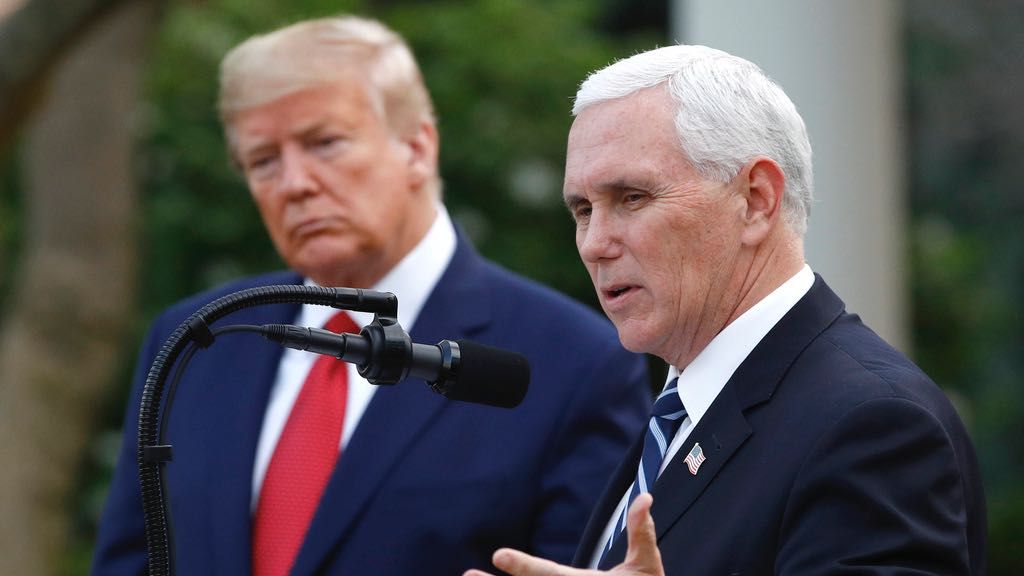
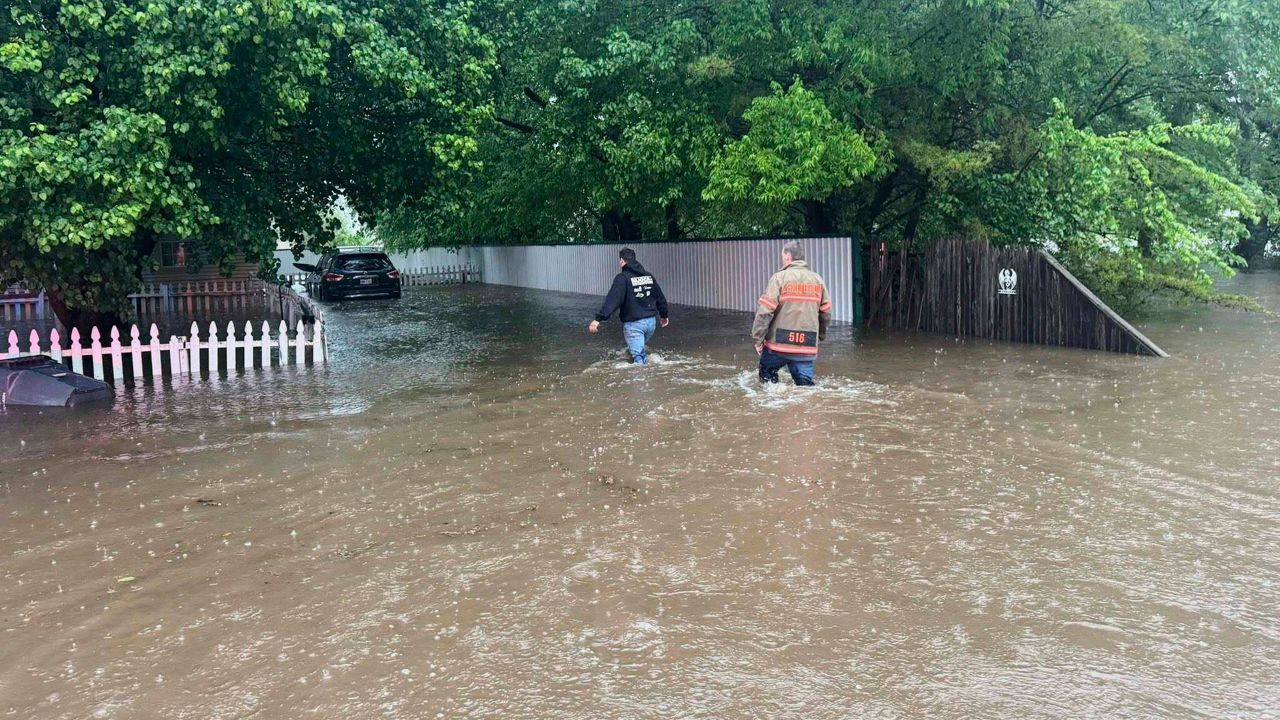
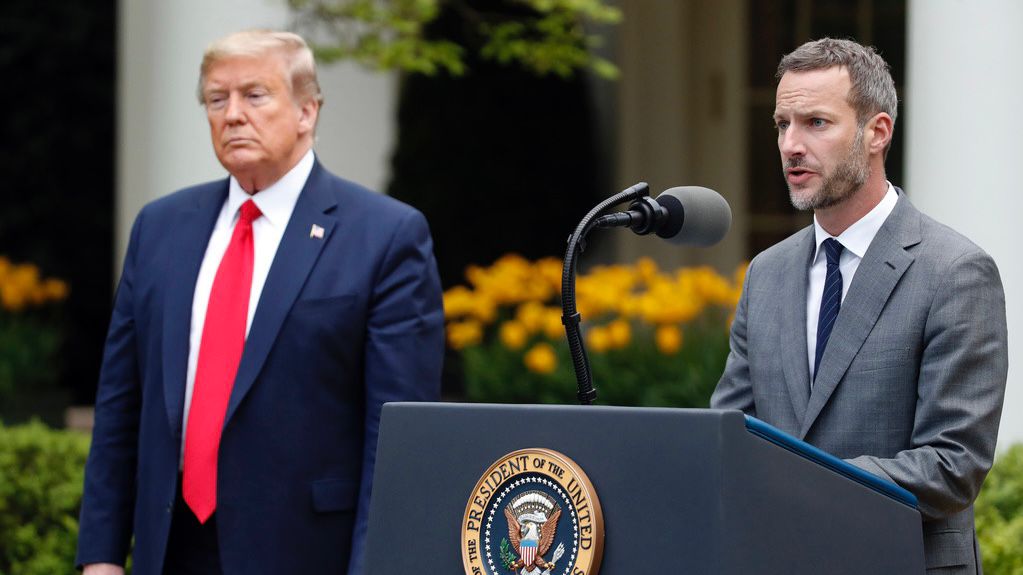
_crop)
